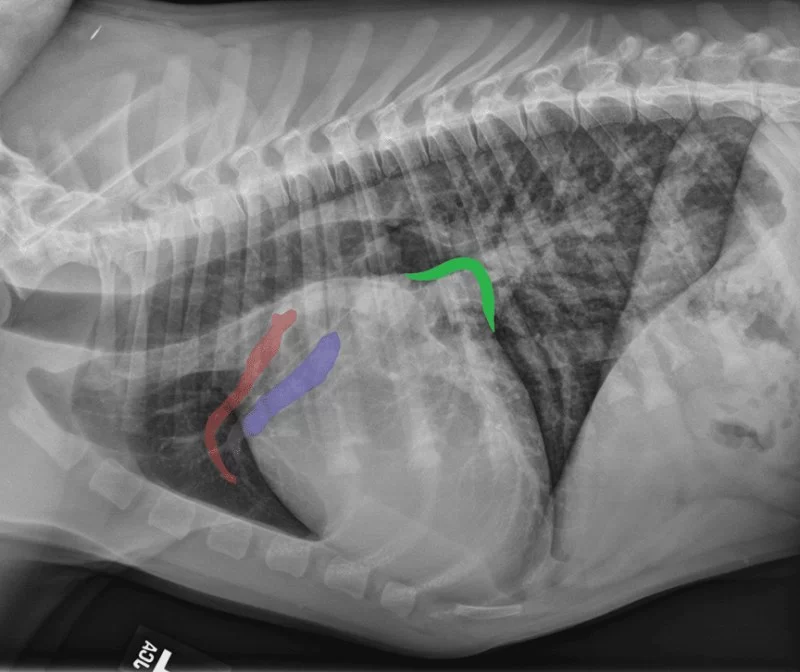- What-are-pet-congenital-heart-defects
- Signs-and-symptoms
- How-vets-diagnose-heart-defects
- Treatment-options-for-pet-heart-defects
- Living-with-a-pet-with-heart-defects
What Are Pet Congenital Heart Defects?
Pet congenital heart defects are heart conditions present from birth that affect how well the heart pumps blood. These conditions can impact both puppies and kittens and may vary in severity. Some pets show symptoms early in life, while others may not appear sick until adulthood.
These heart defects typically involve structural issues such as holes in the heart, narrow blood vessels, or abnormal heart valves. Genetics often play a major role, but sometimes environmental factors during pregnancy can influence their development.
While this diagnosis can feel frightening for pet parents, modern veterinary medicine offers incredible tools to help pets enjoy longer, healthier lives. Clinics like Hidden Brook Veterinary guide families every step of the way.

2200 E Irlo Bronson Memorial Hwy, Kissimmee, FL 34744, USA
See DetailsSigns and Symptoms You Should Watch For
Not all signs of congenital heart disease are obvious, especially in young pets who may still be active. However, early detection makes a big difference.
Common symptoms include:
- Rapid breathing, even while resting
- A persistent cough that is not related to illness
- Fainting or collapsing during play
- Poor weight gain in puppies and kittens
- Blue-tinged gums, indicating low oxygen levels
- Lethargy and reduced energy
Some pets may show none of these signs. In fact, the first clue is often a heart murmur discovered during a routine wellness exam. This is why regular veterinary visits matter so much.
How Veterinarians Diagnose Heart Defects
If a veterinarian suspects a congenital heart defect, several diagnostic tools may be used to pinpoint the problem:
1. Chest X-Rays
These images show heart size and shape and how the lungs are affected.
2. Echocardiogram (Heart Ultrasound)
This is the most definitive test, allowing vets to see heart valves, vessels, and blood flow in motion.
3. Electrocardiogram (ECG)
Used to detect irregular heart rhythms, which sometimes occur alongside congenital issues.
Early diagnosis opens the door to more effective treatment—especially when working with experienced cardiology-supportive teams like at Hidden Brook Veterinary.
Treatment Options for Pet Congenital Heart Defects
Treatment depends on the specific condition and how severe it is. Some pets only need observation as they grow, while others require medical intervention.
Medication Management
Drugs may improve heart function, reduce fluid buildup, and support a normal lifestyle.
Surgical Correction
Some congenital conditions can be fully repaired through surgery or minimally invasive catheter procedures performed by heart specialists.
Exercise and Nutritional Care
Moderated activity and a balanced diet ensure pets stay strong without putting excess strain on the heart.
Veterinary teams create personalized plans because every pet’s heart is unique.
Living with a Pet Who Has a Congenital Heart Defect
A diagnosis like this can feel overwhelming—but many pets with congenital heart defects go on to live joyful lives with the right care.
Owners often describe deepened companionship, cherishing every moment even more. Here’s one story:
“When Luna, our Golden Retriever puppy, was diagnosed with a heart condition, we were terrified,” one family shared. “But with veterinary guidance, she enjoys long walks, loves her toys, and brings happiness every day.”
If your pet has symptoms or a recent diagnosis, contacting experts such as Hidden Brook Veterinary ensures you have support from professionals who truly care.
You are not alone—your pet’s heart story can still be full of love, comfort, and adventure.











